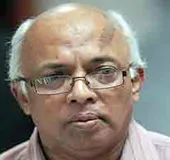-
CENTRES
Progammes & Centres
Location
The demand for banishing Ahmadiyyas from Islam carries ugly echoes of the past, originating primarily in Pakistan.

The day Bangladesh was liberated by the joint command of the Indian Army and the Bengali Mukti Bahini in 1971, the Bangladesh government-in-exile decreed a ban on communal politics in the new country. The reason behind the decision was self-evident: political parties based on religion had throughout the course of the war actively collaborated with the Pakistan occupation army, action which only accentuated the genocide perpetrated by the soldiers in what was till then regarded as the eastern province of Pakistan.
The government-in-exile, generally referred to by Bengalis as the Mujibnagar government after the war-time capital of their occupied country, clamped a ban on the Jamaat-e-Islami, the Nizam-e-Islam, the Pakistan Muslim League and the Pakistan Democratic Party. For the next three and a half years, until the assassinations of Bangladesh’s founding father Sheikh Mujibur Rahman and four prominent independence leaders between August and November 1975, Bangladesh pursued a secular form of politics. The principle of secular democracy was an important underpinning of the country’s constitution formulated within a year of Bangladesh’s emergence.
The principle of secular democracy was an important underpinning of the country’s constitution formulated within a year of Bangladesh’s emergence.
The secular foundations of the country were first given a rude jolt by Bangladesh’s first military ruler, General Ziaur Rahman, in the mid-1970s when through dictatorial fiat, he did away with the principles of socialism and secularism in the constitution. The regime of the second military ruler, General Hussein Muhammad Ershad, went a step further in the early 1980s when it decreed Islam as Bangladesh’s state religion. In the years since the return of parliamentary democracy in February 1991, the political parties which have alternated in power — the Bangladesh Nationalist Party and the Awami League — have not considered it politically wise or feasible to roll back these clearly regressive moves. The BNP has of course remained in fealty to Zia, its founder. For its part, the Awami League has made no move to take the country back to secular politics even though it regularly speaks of Bangladesh being a home for people of all religious beliefs. It remains unusually careful about respecting the sentiments of the Muslim majority.
In simple terms, secularism remains fugitive in a country built on the foundations of non-communalism. Just how influential the forces of communalism happen to be was brought home a few days ago when Shah Ahmad Shafi, the chief of the religion-based outfit Hefazat-e-Islam, demanded that the Ahmadiyya Muslim community in Bangladesh be declared a non-Muslim congregation. Ahmadiyyas, or Qadianis as they are also called, have for decades been condemned by Muslims for beliefs which are considered contrary to the fundamental tenets of Islam. With the encroachment of a Wahhabi brand of Islam in Bangladesh, demands have increasingly been made for government action against the Ahmadiyyas. About a decade ago, an outfit called Khatme Nabuwat, a fanatical organisation of the Sunni sect of Muslims, went on a rampage in parts of the country calling for a ban on Ahmadiyyas. This new demand by Shafi is effectively a revival of the old agitation, coming as it does as the Ahmadiyya community prepares for a convention in the northern town of Panchagarh later this month. The Hefazat chief’s incendiary remarks have already resulted in attacks on Ahmadiyyas in parts of the country. Undeterred by the violence, Shah Ahmad Shafi has vowed to launch a movement to force the government to declare Ahmadiyyas non-Muslim, thereby pushing the latter into being a religious minority.
Ahmadiyyas, or Qadianis as they are also called, have for decades been condemned by Muslims for beliefs which are considered contrary to the fundamental tenets of Islam. With the encroachment of a Wahhabi brand of Islam in Bangladesh, demands have increasingly been made for government action against the Ahmadiyyas.
The government has not responded to the demand, which is not quite surprising. In the past couple of years, the Awami League government and the Hefazat have intriguingly drawn closer to each other, with the leaders of the Hefazat holding a rally in Dhaka a few months ago, and according Prime Minister Sheikh Hasina, the honorific of Qawmi Mata or Qawmi Mother. The move came in the wake of the government’s willingness to treat students at Qawmi madrasas, supervised by the Hefazat, at par with those studying in universities and seeking government employment. The camaraderie between the government and the Hefazat is a far cry from the conditions which Shafi and his followers triggered in May 2013, when thousands of its activists poured into the capital Dhaka, ostensibly to hold a religious rally but then refused to move out of the city until they had seen the back of the government. It was not until the authorities employed security services against the fanatics and flushed them out of the city that normal conditions were restored.
The sins of the Hefazat are legion. Back in 2013, it publicised a list of demands which essentially were a further undermining of secular politics. A principal feature of the demands was a call for a ban on education and employment for women, a point which led to countrywide condemnations by liberal sections of the population. Ahmad Shafi added fuel to the fire when he drew an analogy of women with tamarind. His point was obscene. He compared the taste of tamarind to an appreciation of women by a male-dominated society. He was roundly condemned for his outrageous statement. And it was not long before the influence of the Hefazat began to be noticed elsewhere — and that was a sign of the rapprochement it was beginning to initiate with the government. School textbooks began to be recast, with writings by non-Muslim writers being pushed out in favour of those by Muslims. In recent weeks, the Hefazat chief has revived his anti-women diatribe through having his followers pledge not to have their daughters educated or to have them instructed strictly by female instructors, and that too up to an insignificant level.
The sins of the Hefazat are legion. Back in 2013, it publicised a list of demands which essentially were a further undermining of secular politics. A principal feature of the demands was a call for a ban on education and employment for women, a point which led to countrywide condemnations by liberal sections of the population.
The demand for banishing Ahmadiyyas from Islam carries ugly echoes of the past, originating primarily in Pakistan. In 1953, the Jamaat-e-Islami led by Abul A’ala Maududi, determined to declare Ahmadiyyas outcasts from Islam, initiated riots in Lahore which led to the deaths of hundreds of Ahmadiyyas. The mayhem only stopped when martial law was declared in the city by General Azam Khan. Maududi was tried and sentenced to death. The Jamaat leader was, however, eventually pardoned and released, only to go on to play an even more sinister role in 1971 in Bangladesh. In 1974, religious bigots in Pakistan again went on the rampage calling for Ahmadiyyas to be declared non-Muslims. The government of Prime Minister Zulfikar Ali Bhutto obliged them. To this day, Ahmadiyyas remain a persecuted community in Pakistan.
Obviously, Shah Ahmad Shafi, grown confident through his understanding with the Bangladesh government, is busy trying to emulate the Jamaat. His statements have sent alarm bells ringing across Bangladesh, a condition that should worry the authorities to no end. And mysterious are the visits which leading functionaries of the government have been making to the Chittagong headquarters of the Hefazat chief to seek his blessings. Bengali worries thus go up exponentially.
Secular politics in Bangladesh remains fugitive. Indeed, it is in clear retreat.
The views expressed above belong to the author(s). ORF research and analyses now available on Telegram! Click here to access our curated content — blogs, longforms and interviews.

Syed Badrul Ahsan is a Senior Journalist and Commentator on South Asian affairs based in Dhaka. Ahsans entry into full time journalism came about through ...
Read More +